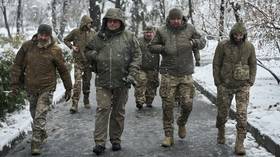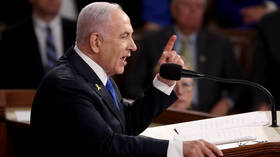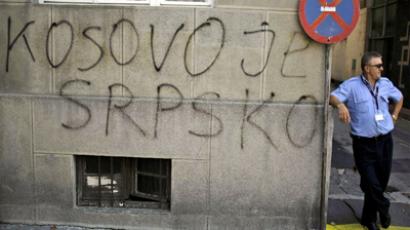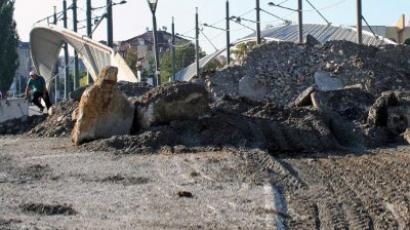One step closer: EU ministers back Serbian membership candidacy
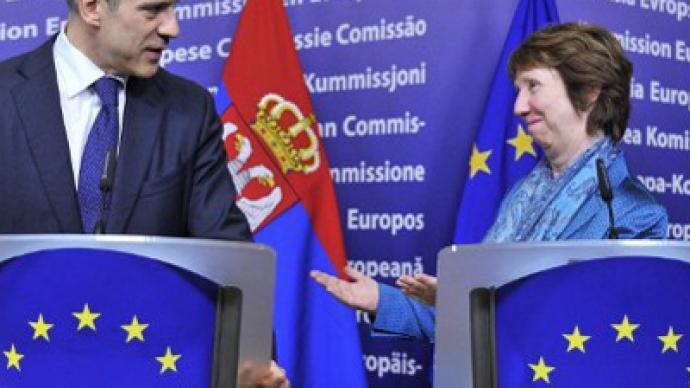
In the six years it has dreamed of an EU ticket, Serbia seems to have made its policies in every shape the bloc demanded. And apparently, Belgrade’s uncompromising will to compromise on Kosovo was the correct key to the EU door.
Foreign ministers of the European Union are recommending that Serbia be allowed to become an official candidate for membership in the 27-nation bloc. The final decision will be made later this week during the EU leaders' summit.However the almost-sealed deal has met with unexpected opposition from Romania. The country refused to sign the agreement unless Serbia guarantees it will uphold the rights of ethnic Romanians living in the country. Notwithstanding the dispute, Serbia’s race for EU candidacy, which began in October 2005, has every chance of succeeding. On the eve of the fateful meeting, French Foreign Minister Allan Juppé said ministers had reached a general agreement and there were “no objections” to the move.If the ministers give their final go-ahead, Serbia might well gain candidacy status in March after the motion is approved at an EU summit. Brussels’ approval would bring election points to the current Democrat-led coalition in the parliamentary ballot set for spring. President Boris Tadic, the leader of Serbia’s Democratic Party, says that Brussels’ decision would attest his party’s slogan: “Both the EU and Kosovo.”
UN Security Council resolution 1244, adopted in June 1999 after the Kosovo war for independence, treats Kosovo as an integral part of Serbia. In February 2008, Kosovo proclaimed independence. Seven months later, the International Court of Justice stated that the declaration of independence did not run contrary to international law, but refrained from any ruling. Kosovo is now recognized as a sovereign state by 88 governments. Serbia does not acknowledge Kosovo’s independence.
The EU meeting comes days after Serbia and Kosovo finally agreed a compromise on Pristina’s representation at regional meetings. In forums, the region’s representatives will sit by a sign saying “Kosovo” with two footnotes: one referring to UN resolution 1244, and the other to the ruling of the International Court of Justice over Kosovo’s declaration of independence. The Friday compromise between Pristina and Belgrade sparked massive protests in Kosovo. On Monday, thousands of Kosovo Albanians gathered around the local government in Pristina to slam the accord as impairing Kosovo’s independence. At the same time, Kosovo Serbs accused Belgrade of betrayal for the sake of getting EU candidacy. Kosovo’s proclaimed independence was one of the reasons behind the constant faltering of the talks on Serbia’s EU membership, even after the European Commission recommended making the country an official candidate on 12 October 2011.Another condition for full EU accession put to Belgrade was cooperation with the war crimes tribunal in The Hague. The cooperation resulted in Serbia handing over former Bosnian Serb leader Radovan Karadzic, arrested in Belgrade in July 2008. In October 2009, The Hague put Karadzic on trial, accusing him of several war crimes counts including ordering the 1995 Srebrenica massacre. Court proceedings over another suspect, Bosnian Serb ex-general Ratko Mladic, will start in May. The most wanted war crimes suspect in the Bosnian conflict, Mladic had been on the run for 16 years before his arrest in January 2011. Thousands of Serbs took to the streets of Belgrade to protest the arrest of Mladic last year, as they had done earlier slamming the detainment of Radovan Karadzic.


